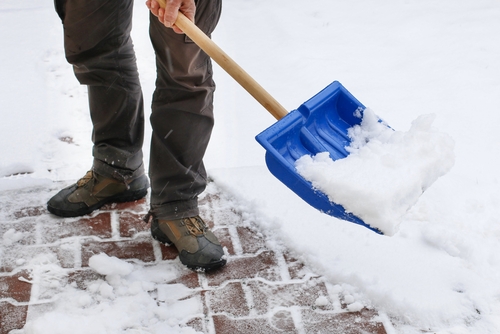Preventing Frostbite
As cold weather conditions arise, you may become more vulnerable to frostbite while working outdoors. Frostbite refers to a form of skin damage in which the underlying tissue freezes, sometimes leading to permanent numbness and, in severe cases, amputations of impacted extremities. It’s caused by prolonged exposure to low temperatures or by brief exposure to excessively frigid or wet conditions. Certain individuals are more susceptible to developing frostbite than others, including older employees and those with circulatory problems. People who have diabetes are also at a greater risk. Nevertheless, anyone could experience frostbite if they fail to take the proper precautions. That’s why it’s important for you to understand what frostbite looks like and how to prevent it as you work outside throughout the winter.
Symptoms of frostbite may include partial or complete numbness, discoloration of the skin (e.g., paleness or redness) and burning or tingling sensations. If left untreated, frostbitten skin gradually darkens after a few hours. Skin destroyed by frostbite is completely black and looks loose and flayed, as if burnt. To reduce your risk of frostbite while working outdoors, it’s vital to protect your hands, feet, nose and ears. Be sure to wear a hat and gloves and bundle in layered and warm clothing when heading out into frigid weather. At the first signs of redness or pain in your skin, which may indicate that frostbite is developing, inform your supervisor and get out of the cold. By taking these steps, you can stay safe this winter.
Ensuring Winter Wellness
The winter months are notorious for bringing sickness. Influenza (flu) season begins in October and peaks between December and February. Colds are also more common during the season. Further adding to the mix of potential wintertime illnesses, COVID-19 and respiratory syncytial virus (or RSV) are swiftly circulating in the United States. Viruses transmit more effectively in cold and dry weather, increasing your chances of coming into contact with sickness. And as cold weather drives people indoors, you’re more likely to be in close contact with someone who isn’t feeling well. Here are some tips for keeping yourself healthy on the job during the winter months:
- Practice proper hygiene. Hand and respiratory hygiene are essential for preventing the spread of germs during winter. Wash your hands often or carry an alcohol-based hand sanitizer. Avoid touching your eyes, nose and mouth—and always cough or sneeze into a tissue.
- Stay hydrated. It may be easier to drink water in the summer heat, but staying hydrated in winter is just as critical. Wintertime benefits of staying hydrated include more energy and better skin protection.
- Get enough sleep. Quality sleep is essential for your physical and mental well-being, and too little sleep can wreak havoc on your immune system. Adults should aim to get at least seven to nine hours of quality sleep each night.
- Keep moving. It’s recommended that adults engage in moderate-intensity aerobic activity for at least 150 minutes each week and muscle-strengthening activities two times per week. It may seem like a lot at first, but if you break it down, that’s 30 minutes of exercise five times a week. Staying on top of your fitness during winter can be challenging, but it can help your overall health this time of year.
- Eat a healthy diet. It’s crucial to eat a heart-healthy diet full of fruits, vegetables and lean proteins. Eating foods high in prebiotics (e.g., bananas, legumes and oatmeal) can also be beneficial as they feed the good bacteria in your gut.
- Reduce your alcohol consumption. Colder weather is often correlated with increased alcohol consumption, but it’s vital to curb your intake. Not only can alcohol provoke feelings of depression, anxiety and other mental health challenges, but excessive substance use can also weaken your immune system.
- Focus on getting vitamins. Taking a daily multivitamin is the most efficient way to ensure your body gets the nutrients it needs. Vitamins help your body with various critical functions. For example, vitamin D helps strengthen your bones. Since wintertime often means less sunlight, most people have a reduced ability to produce vitamin D outside this time of year. Taking a supplement may fill that gap.
- Manage stress through self-care. Stress can negatively impact your physical and mental health, so make an effort to engage in activities you enjoy. Take time to unwind and prioritize your hobbies or other activities that help you relax and recharge.
Talk to your supervisor for more information on combatting winter illness.
